
The Organization of American States is an international organization founded on 30 April 1948 to promote cooperation among its member states within the Americas.
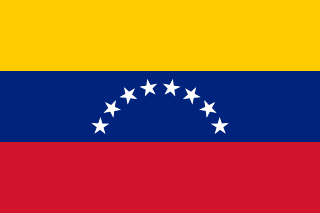
Venezuela, officially the Bolivarian Republic of Venezuela, is a country on the northern coast of South America, consisting of a continental landmass and many islands and islets in the Caribbean Sea. It comprises an area of 916,445 km2 (353,841 sq mi), and its population was estimated at 29 million in 2022. The capital and largest urban agglomeration is the city of Caracas. The continental territory is bordered on the north by the Caribbean Sea and the Atlantic Ocean, on the west by Colombia, Brazil on the south, Trinidad and Tobago to the north-east and on the east by Guyana. Venezuela is a presidential republic consisting of 23 states, the Capital District and federal dependencies covering Venezuela's offshore islands. Venezuela is among the most urbanized countries in Latin America; the vast majority of Venezuelans live in the cities of the north and in the capital.

Alfred-Maurice de Zayas is a Cuban-born American lawyer and writer, active in the field of human rights and international law. From 1 May 2012 to 30 April 2018, he served as the first UN Independent Expert on the Promotion of a Democratic and Equitable International Order, appointed by the United Nations Human Rights Council.

The Supreme Justice Tribunal is the highest court of law in the Bolivarian Republic of Venezuela and is the head of the judicial branch. As the independence of the Venezuelan judiciary under the regime of Nicolás Maduro is questioned, there have recently been many disputes as to whether this court is legitimate.
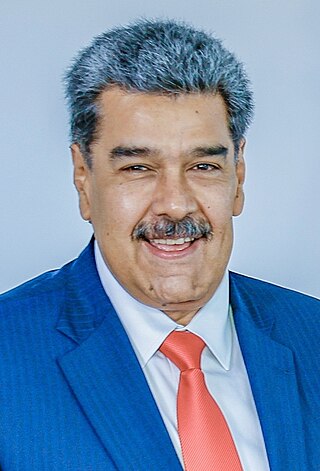
Nicolás Maduro Moros is a Venezuelan politician and the 53rd president of Venezuela since 2013. Previously, he was the 24th vice president of Venezuela from 2012 to 2013, the minister of foreign affairs from 2006 to 2012, and the 3rd president of the National Assembly of Venezuela from 2005 to 2006.

Relations between Cuba and Venezuela were established in 1902. The relationship deteriorated in the 1960s and Venezuela broke relations in late 1961 following the Betancourt Doctrine policy of not having ties with governments that had come to power by non-electoral means. A destabilizing factor was the Cuban support for the antigovernment guerrilla force that operates in remote rural areas. Relations were reestablished in 1974.
The Permanent Assembly for Human Rights is an Argentine non-governmental human rights organization; founded in 1975. According to its official website the organization is the product of a "call from people coming from distinct areas: the church, politics, Human Rights, sciences, culture, and labour Argentines in response to the increasing violence and the collapse of the most elemental Human Rights in the country".

The record of human rights in Venezuela has been criticized by human rights organizations such as Human Rights Watch and Amnesty International. Concerns include attacks against journalists, political persecution, harassment of human rights defenders, poor prison conditions, torture, extrajudicial executions by death squads, and forced disappearances.
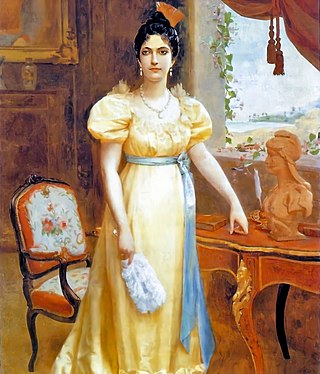
Gender equality is established in the constitution of Venezuela and the country is a signatory of the United Nations's Convention on the Elimination of All Forms of Discrimination Against Women. However, women in the history of Venezuela have played asymmetrical roles in society compared to men. Notable women have participated in the political history since the Venezuelan War of Independence in the 19th century, but universal suffrage was not granted until 1947.

The Venezuelan Observatory of Social Conflict is a Venezuelan non-governmental organization that was founded in 2010 which focuses on promoting human rights and studying social conflict in Venezuela.

An ongoing socioeconomic and political crisis began in Venezuela during the presidency of Hugo Chávez and has worsened during the presidency of successor Nicolás Maduro. It has been marked by hyperinflation, escalating starvation, disease, crime and mortality rates, resulting in massive emigration.
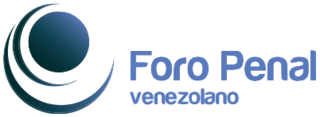
Foro Penal is a Venezuelan human rights organization that provides legal assistance pro bono to people subject of arbitrary detentions and their relatives. The organization is composed of regional coordinators for each state in Venezuela, pro bono lawyers on a national level and a network of over five thousand volunteers, non-lawyer activists, known as "active defensors".
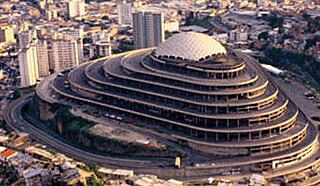
Torture in Venezuela has been a consistent phenomenon throughout its history. Various dictatorships from the Spanish colonial era into the twentieth century utilized torture against common criminals and political opponents. In the twentieth century, torture was common during the dictatorships of Juan Vicente Gómez and Marcos Pérez Jiménez. Torture also took place occasionally during Venezuela's democratic period, particularly during social outbursts, such as during the Caracazo and the 1992 coup attempts.

Geraldine Patricia Chacón Villarroel is a lawyer, human rights advocate and student of Liberal Studies at the Universidad Metropolitana in Caracas. Chacón was declared a prisoner of conscience by Amnesty International who issued an urgent action calling for her immediate and unconditional release on 27 April 2018.
The Local Committees for Supply and Production are food distribution committees promoted by the Venezuelan government in which the communities themselves supply and distribute the priority foods through a house-to-house delivery method. It was established in 2016 by President Nicolás Maduro in response to the shortages in Venezuela. The committees have been subject of complaints about corruption, political use, delays, poor food quality and price increases without prior warning. This service is a subsidiary of the Ministry of Popular Power for Food.
Alena Douhan of Belarus is the United Nations Special Rapporteur on the negative impact of the unilateral coercive measures on the enjoyment of human rights, as 25 March 2020. When appointed, she was a professor of International Law and the Director of the Peace Research Center at the Belarusian State University. Douhan's position on economic sanctions have garnered criticism from some international human rights law scholars.

The La Vega raid was a police raid that occurred on 8 January 2021 in La Vega Parish, Caracas, Venezuela. The objective of the raid was to take control of La Vega Parish, which was controlled by a criminal organization, led by Leonardo José Polanco Angulo; he was a drug lord, known as "El Loco Leo". Members of the Venezuelan National Police (PNB), the Special Action Forces (FAES) and the Venezuelan National Guard seized control of the parish, killing a number of people in the neighborhood. According to investigative journalists and human rights organizations, the death toll was 23 people. By 11 January, no member of the Nicolás Maduro administration had made a statement about the events or announced a death toll.
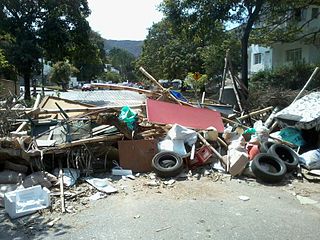
Guarimba is a term colloquially used in Venezuela for a protest method primarily used by the Venezuelan opposition that involves erecting street barricades or roadblocks. Although the erection of barricades in Venezuela dates back decades, the term has gained relevance during protests against the governments of Hugo Chávez and Nicolás Maduro, when it has become a pejorative and stigmatizing term. Venezuelan officials have used the term to disqualify and criminalize the opposition or opposition demonstrations.
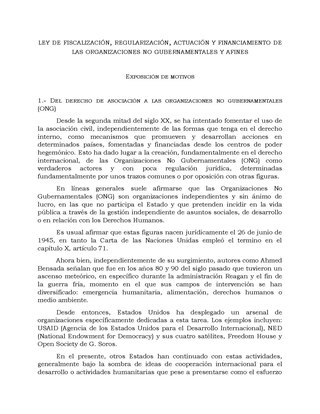
The Law on Control, Regularization, Operations and Financing of Non-Governmental and Related Organisation, also known colloquially as the Anti-Society Law, is a law approved by the V Legislature of the National Assembly of Venezuela, with a pro-government majority, presented in first discussion on 24 January 2023. The law is currently in second discussion in the National Assembly, since 9 January 2024.
















